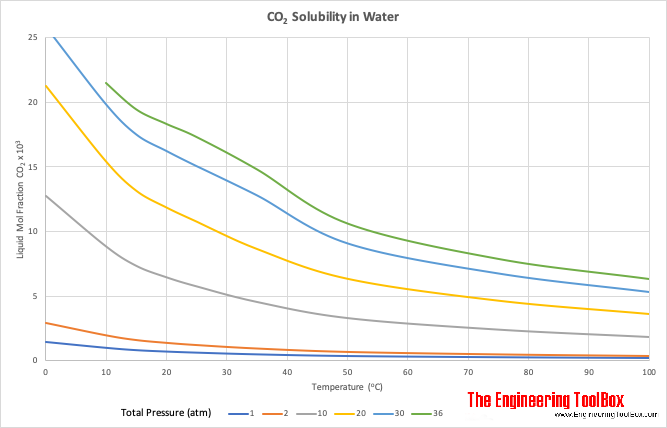The h2co3 content of unadulterated rain is 15 micromoles of H+/Kg at room temp. The pHBC of average field soil from a 3000km transect in asia varied from 10 to 188 - mmol-kg-ph unit... from 40 localities. This other research found soil values of 45-1000 pHBC. https://www.science.gov/topicpages/s/spiked+soil+samples.html
That means that H2CO3 would affect arid meadow soil by 0.08 to 1.0 pH points if 1kg of water reacted completely with 1kg soil in a sealed environment. And 0.33 to 0.015 pH points for the referenced research.
However, if you boil the water, the gases expand and leave the water even prior to boiling point, which can be seen as bubbles previous to 100'C, boiled water error becomes 0.2 to 0.003 pH points.
This is the only ref i can find:
https://www.engineeringtoolbox.com/docs/documents/1000/solubility_CO_water.png
ttps://www-engineeringtoolbox-com.cdn.ampproject.org/ii/w1200/s/www.engineeringtoolbox.com/docs/documents/1148/solubility-co2-water.png
That means that if you have unadulterated rainwater at pH 5.5, and you boil it and jar it, you will have water with a pH near 7 after sealing and cooling.
Pure water is not natural or biological and it is aggressive to get to equilibrium. Upon contact with the atmosphere, it will immediately begin absorbing CO2 and the pH will drop and settle in at about 5.5 after about two hours.
Carbonic acidification is a background effect of the athmosphere aerated soil and rain to similar degrees.
Strong acid - pKa < 2
Weak acid - 7 > pKa > 2
Weak base - 10 >pKa > 7
Strong base- pKa > 10
oxalic acid and citric acid have a pKa in the range of 1 to 3, they are fairly strong, whereas CO2 has a pKa of about 6.4.
If your rainwater has a pH below 5.3, something is wrong with it and if the rainwater is around 5.5, it's nearly the same as distilled water.
I micromole of HCl rects completely and gives distilled water a pH of 6, whereas 1 umol of CO2 causes [a pH of 6,997][6], because only 0.3% of it converts to H2CO3.
[6]: https://books.google.fr/books?id=yRMgYc-8mTIC&pg=PA124&lpg=PA124&dq=hcl%20micromole%20co2%20distilled%20water%20concentration&source=bl&ots=OFKb4CB3MI&sig=ACfU3U0a1XQ_GSIZ5E-nj7JgPsaeDv7SbA&hl=en&sa=X&ved=2ahUKEwib-vuMkc_hAhVEThoKHYIcDtQQ6AEwCXoECFAQAQ#v=onepage&q=hcl%20micromole%20co2%20distilled%20water%20concentrationhcl&f=false




